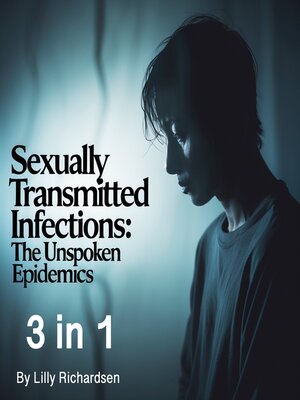Sexually Transmitted Infections
audiobook (Unabridged) ∣ The Unspoken Epidemics (3 in 1)
By Lilly Richardsen

Sign up to save your library
With an OverDrive account, you can save your favorite libraries for at-a-glance information about availability. Find out more about OverDrive accounts.
Find this title in Libby, the library reading app by OverDrive.



Search for a digital library with this title
Title found at these libraries:
| Library Name | Distance |
|---|---|
| Loading... |
Beneath the surface of public health discourse lies a critical yet often overlooked reality—the silent spread of sexually transmitted infections that affect millions worldwide each year. Despite their prevalence and significant impact on reproductive health, personal relationships, and long-term wellbeing, infections like Chlamydia, Gonorrhea, and Human Papillomavirus (HPV) remain shrouded in stigma, misinformation, and inadequate public awareness. This comprehensive exploration delves into the biological mechanisms, epidemiological patterns, and clinical implications of these common yet frequently misunderstood infections that continue to represent significant challenges in global public health.
The narrative of sexually transmitted infections transcends mere medical understanding; it encompasses complex social dimensions, psychological impacts, and public health challenges that affect individuals across all demographics and communities. By examining the pathophysiology, transmission patterns, diagnostic approaches, and treatment modalities of Chlamydia, Gonorrhea, and HPV, this book aims to dismantle the barriers of silence and stigma that often prevent effective education, detection, and intervention. Readers will journey through the intricate biological landscapes where these pathogens operate, while also exploring the broader contexts of prevention strategies, healthcare access, and educational imperatives that are essential to addressing these unspoken epidemics. Through evidence-based information and compassionate insight, we seek to transform the conversation around sexual health from one of whispered concern to informed, open dialogue that recognizes these infections not as moral judgments, but as medical conditions deserving of attention, research, and comprehensive care.







